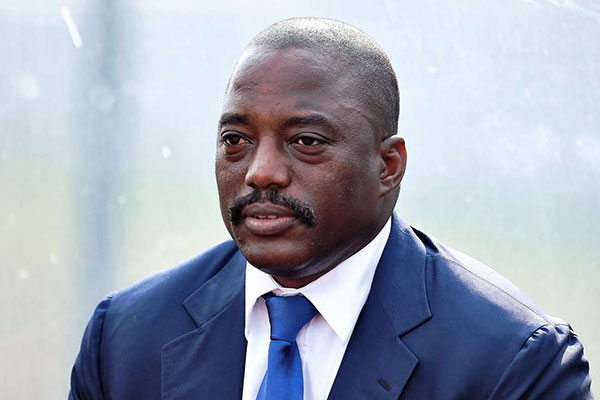
DR Congo President Joseph Kabila replaced the country’s army chief in a military shake-up at the weekend that included the promotion of two key allies on a US sanctions blacklist.
The changes come as the vast African country is in the grip of a crisis over whether President Kabila will run in crucial, long-delayed elections in December despite his constitutional limit expiring in 2016.
Lieutenant-General Celestin Mbala will replace retiring General Didier Etumba as the head of the army (FARDC), according to orders signed Saturday and announced on public television Sunday.
Major General Gabriel Amisi, a former army commander, will take the army’s second most powerful post as deputy chief of staff in charge of operations and intelligence.
President Kabila also appointed General John Numbi, a former national police chief, as the army’s inspector-general.
DEMOCRATIC PROCESSES
Gen Amisi and Gen Numbi — both close President Kabila allies — were put on a Washington sanctions blacklist in 2016 for actions that « undermine democratic processes in the DRC and to repress the political rights and freedoms of the Congolese people ».
A rebel leader during the second Congo war from 1998 to 2003, Amisi was suspended as the head of the army in 2012 after a UN report accused him of running a huge arms smuggling network supplying rebel groups.
He was cleared in 2014 and became regional commander of the first defence zone, which includes the capital Kinshasa.
Gen Numbi, meanwhile, is said by critics to be the prime suspect in the murder of rights activist Floribert Chebeya in 2011, who was found dead a day after being summoned by the then police chief to his Kinshasa headquarters.
Gen Numbi, who has denied any involvement, was relieved of his post, but Kabila named him as a « national hero » last year.
POSTPONED AGAIN
President Kabila, who took over from his assassinated father in 2001, presides over a country with a history of corruption, poor governance and armed conflict.
He was supposed to step down at the end of 2016 after he reached his two-term limit, but a constitutional clause allowed him to remain in office until his successor is elected.
Elections that should have been held that year were rescheduled for 2017, and postponed again to December 23, 2018.
President Kabila is yet to state whether or not he intends to run, and candidates must declare their bid between July 25 and August 1.
By AFP, in The East African, 15.07.18
